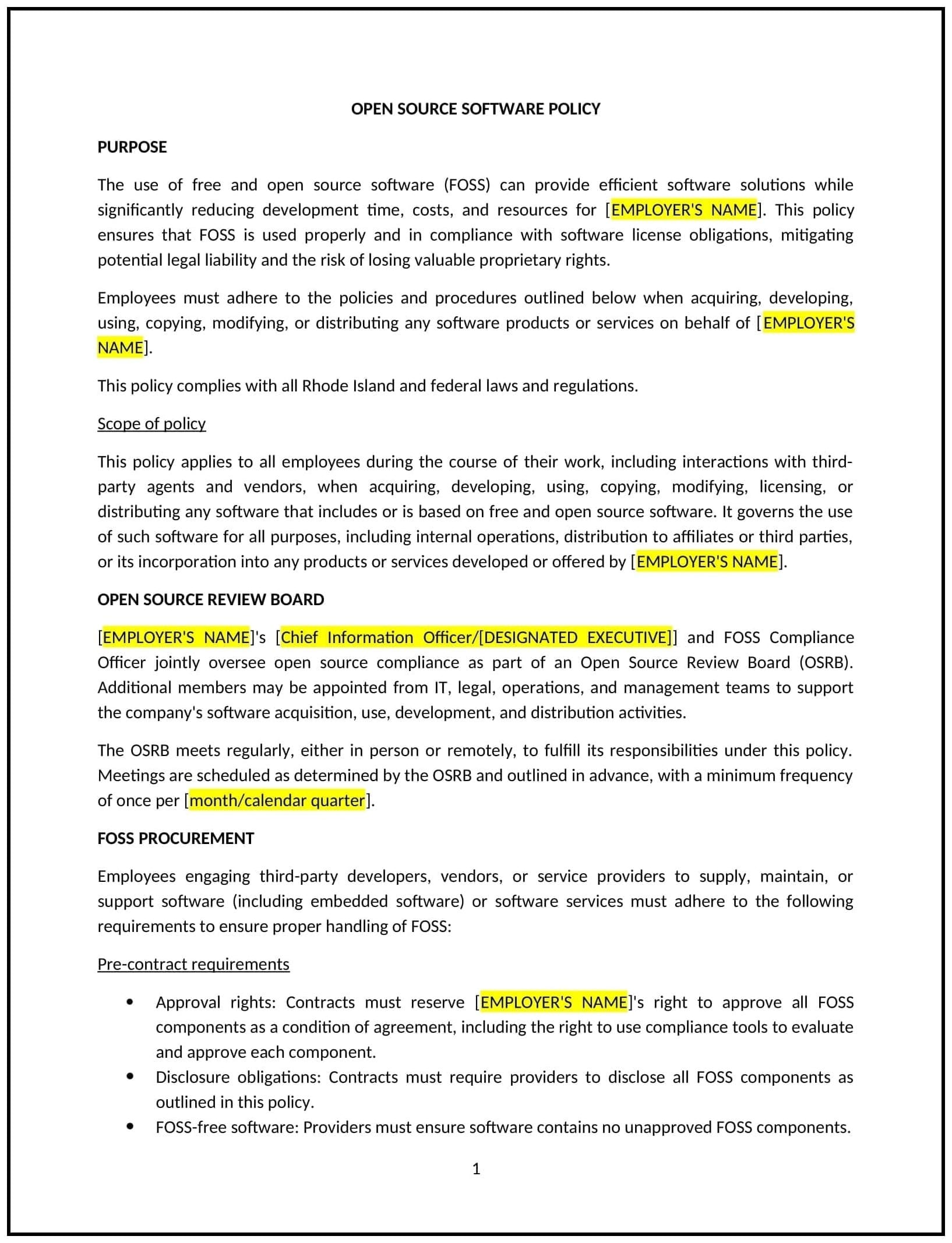Open source software policy (Rhode Island): Free template
Got contracts to review? While you're here for policies, let Cobrief make contract review effortless—start your free review now.

Customize this template for free
Open source software policy (Rhode Island)
This open source software policy is designed to help Rhode Island businesses establish guidelines for using, contributing to, and managing open source software (OSS). It outlines procedures for evaluating OSS, addressing licensing requirements, and ensuring compliance with intellectual property laws.
By adopting this policy, businesses can leverage OSS effectively while minimizing legal and operational risks.
How to use this open source software policy (Rhode Island)
- Define scope: Clarify which types of open source software are covered and the purposes for which they can be used.
- Establish evaluation procedures: Outline steps for assessing OSS, including security, functionality, and licensing considerations.
- Address licensing requirements: Provide guidelines for complying with OSS licenses, such as attribution or redistribution rules.
- Set contribution guidelines: Explain how employees can contribute to OSS projects, including approval processes.
- Train employees: Educate staff on OSS usage, licensing, and contribution requirements.
- Monitor compliance: Regularly review OSS usage to ensure adherence to the policy.
- Review and update: Assess the policy annually to ensure it aligns with evolving technology and legal standards.
Benefits of using this open source software policy (Rhode Island)
This policy offers several advantages for Rhode Island businesses:
- Leverages cost-effective solutions: Enables businesses to use OSS for innovation and cost savings.
- Reduces legal risks: Ensures compliance with OSS licensing and intellectual property laws.
- Enhances transparency: Provides clear guidelines for using and contributing to OSS.
- Supports innovation: Encourages employees to explore and contribute to OSS projects.
- Builds trust: Demonstrates a commitment to ethical and responsible OSS usage.
Tips for using this open source software policy (Rhode Island)
- Communicate the policy: Share the policy with employees and include it in the employee handbook.
- Provide training: Educate employees on OSS usage, licensing, and contribution requirements.
- Monitor compliance: Regularly review OSS usage to ensure adherence to the policy.
- Address issues promptly: Take corrective action if OSS licensing or usage violations occur.
- Update regularly: Assess the policy annually to ensure it aligns with evolving technology and legal standards.